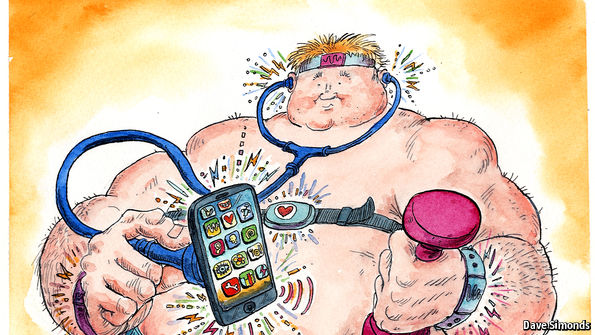The smartphone app Your.MD uses artificial intelligence to understand statements such as "I have a headache" and ask pertinent follow-up questions. The app typifies a new approach to mobile health (also known as m-health): it is intelligent, personalized, and gets cleverer as it gleans data from its users. There are now around 165,000 such apps, and PwC, a consulting firm, forecasts that they will have been downloaded 1.7 billion times by 2017. Most smartphone health apps, such as the Fitbit wristband, now fall squarely into the category of "wellness." However, there is a growing range of apps through which users can talk directly to doctors and therapists, as well as an emerging breed that monitor and diagnose patients with a variety of ailments, in some cases predicting and thus helping to avert health crises. Although many app providers are still small, BCC Research forecasts that global revenues for m-health will reach $21.5 billion in 2018.Read more in the Economist.
Friday, April 1, 2016
Things are looking app
Mobile health apps are becoming more capable and potentially rather useful.
Why Women Aren’t C.E.O.s, According to Women Who Almost Were
"It’s not a pipeline problem. It’s about loneliness, competition and deeply rooted barriers." Read more in the NYT .

-
"It’s not a pipeline problem. It’s about loneliness, competition and deeply rooted barriers." Read more in the NYT .
-
"Why I don’t talk about race with White people." Read more in Medium .
-
Check out the BusinessWeek article here .
